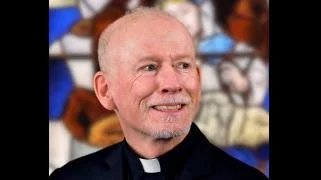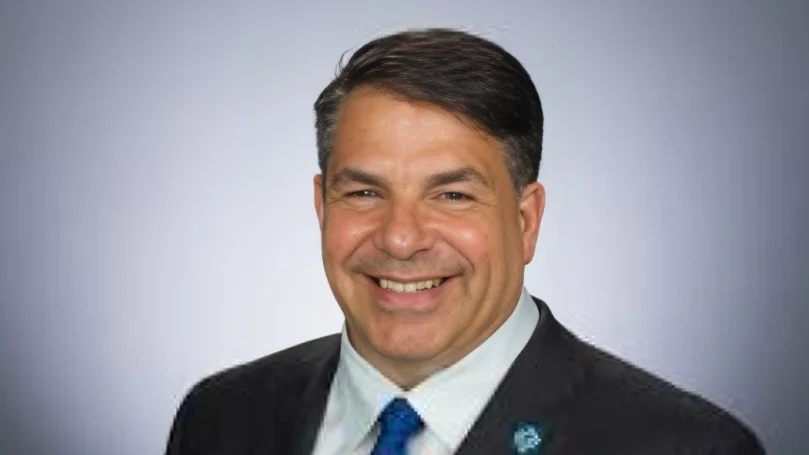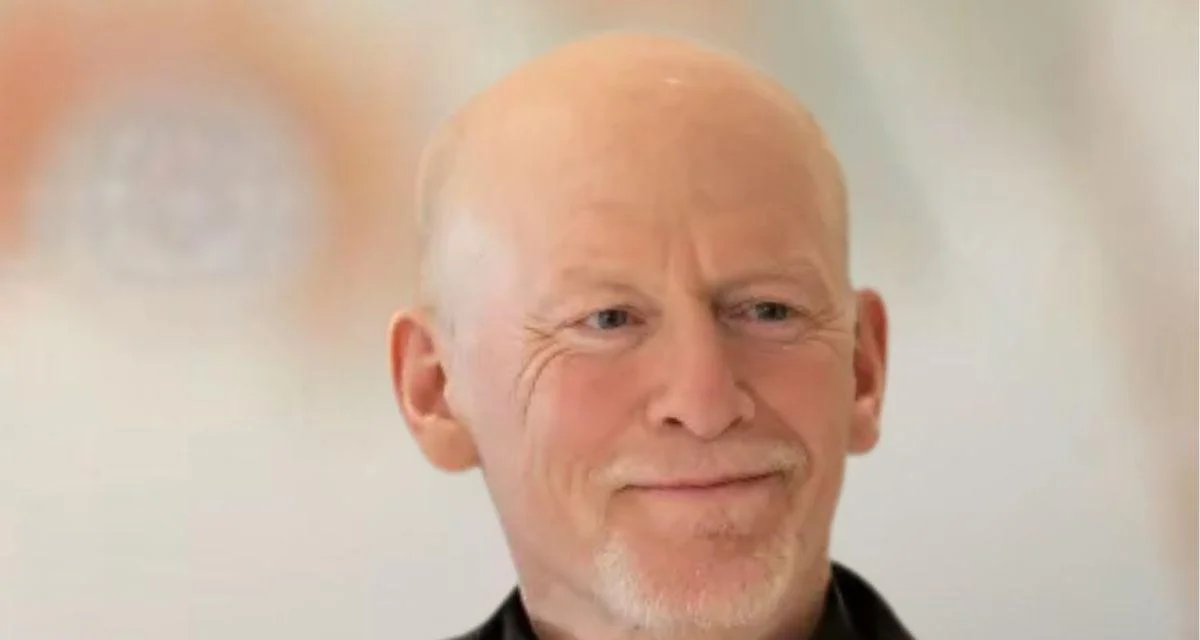
Rev. Brian J. Shanley, O.P. President | St. John's University website
St. John’s University President Rev. Brian J. Shanley, O.P., opened this year’s Vincentian Chair of Social Justice lecture series with a presentation titled “Catholic Intellectual Tradition and the University: God, Philosophy, and Catholic Universities.” The event took place on September 10 at St. Thomas More Church on the Queens campus.
Before delivering his lecture, Fr. Shanley joined a group of Catholic and Ozanam Scholars for lunch, inviting them to discuss any topic they wished. During the luncheon, he shared details from his own background and encouraged students to remain open to unexpected changes in their lives.
“I thought I was going to be a lawyer and ended up as a Dominican priest,” Fr. Shanley told students while recounting how his career path shifted over time. He emphasized the importance of adaptability: “In all those years I spent in school, the most important thing I learned was not any particular topic, but I learned how to learn. That’s the most important thing. Whatever you think you’re going to do with the rest of your lives, you’re probably not going to. Life is full of surprises, switches, and changes. At least my life has been that way. Whatever it is that you do, you’ll always be learning. You might find something else more rich and rewarding, so be open to the prospect of change.”
He added humor about his journey: “None of my plans in life have worked out,” he laughed.
Fr. Shanley described how entering religious life was initially uncertain for him but ultimately became fulfilling as new opportunities emerged: “It happens differently in everyone’s life. A new possibility arises that you hadn’t thought about before.” He explained his motivation for working in higher education: “I love working with young people. Teachers have been the biggest influence on my life, and I thought this is my way of giving back. So, I knew I wanted to be a college professor before I knew I wanted to be a Dominican.”
Reflecting on leadership roles at Providence College and St. John’s University, Fr. Shanley said: “When I kicked the tires of St. John’s, I realized this is a huge challenge and very different. I also believed that with what I learned at Providence, I could help St. John’s get where it needed to go. The diversity of Queens is mind-blowing for me. It’s one of the things I love about being here. I wanted something different—and I got it.”
Students who attended expressed appreciation for engaging directly with university leadership.
History major Leyla Turcios commented on her experience: “It was really great getting to see on a personal level what the president is like and building a connection.” She also noted its value for professional growth: “I also feel like it’s important for us to get used to speaking to people who can make a real difference in our lives... He seemed very open.”
Sport Management major Peyton Frisby said: “I’m very grateful for the opportunity to interact face-to-face with Fr. Shanley... It was great to casually discuss topics important to us as scholars and hear the same from him... aiming to foster opportunities for growth, development, and connection.”
During his lecture following lunch, Fr. Shanley referenced St. John Henry Newman while outlining his view that university education should focus on developing critical thinking rather than preparing students solely for specific careers or professions.
He stated: “The goal... is to transform their minds so that the student becomes a different kind of individual, one able to engage truthfully in conversation or debate, who has a capacity for exercising judgment and for bringing insights and arguments from a variety of disciplines to bear on particular complex issues,” he said.
Fr. Shanley continued by addressing current trends in higher education: “There is a strong tendency these days to turn education into another commodity... Of course we want our students to be meaningfully employed when they graduate but there is more to a flourishing human life than work.”
He outlined ethical requirements within St John's curriculum: “We require ethics classes so that our students learn to think reflectively about what constitutes a good life and how give reasons for choices we make.”
Concluding his remarks regarding institutional identity at St John's University he said: "I like think we put our flag ground when revised our core curriculum... Philosophy theology along humanities help our students begin formulate answers deep questions all persons face their lives."




 Alerts Sign-up
Alerts Sign-up